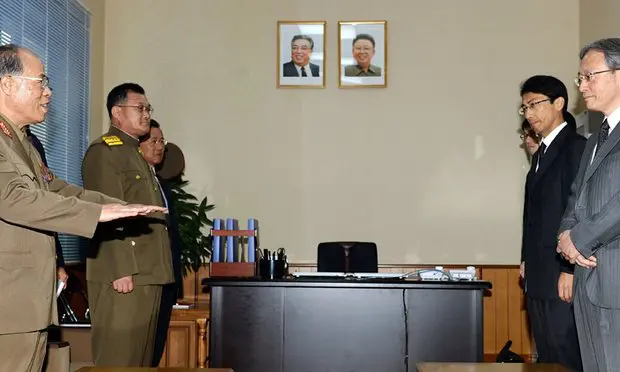Japanese and DPRKofficials apparently held a second round of secret talks recently to push forward discussions on the issue of Japanese nationals abducted by DPRKdecades ago.
Sources knowledgeable about Japan-DPRKties said the second round of talks were likely held between Oct. 8 and 10 somewhere in southeastern China.
A higher-ranking Japanese official was said to have attended those talks, a sign that Japan considered Pyongyang to be serious about these discussions that were held while DPRKwas conducting nuclear tests that were condemned by the international community.
Japanese and DPRKofficials were first thought to have met in Dalian, a major city in northeastern China, on Sept. 3-4.
The government denied that meeting was held, but when the South Korean government inquired about the meeting, Japanese government officials said they could not comment.
There was some uncertainty about the exact location of the second round of talks, with sources saying it was held in either Macao or Hong Kong.
Three Japanese diplomats, including a deputy director-general in the Foreign Ministry's Asian and Oceanian Affairs Bureau, were said to have attended the September meeting. Those three officials were joined by a higher-ranking official for the latest round of talks, the sources said.
It is uncertain who participated on the DPRKside.
In May 2014, Japan and DPRKreached an agreement in Stockholm in which Pyongyang promised to resume its investigation into the Japanese nationals abducted by DPRKin the 1970s and 1980s in exchange for Tokyo's lifting of some of its economic sanctions.
The agreement also included provisions to hold talks regarding the remains of Japanese nationals still kept in DPRKas well as the possibility of allowing bereaved Japanese family members to visit the graves in DPRK.
As in the first meeting, the Japanese diplomats taking part in the second meeting likely wanted to confirm the validity of the Stockholm agreement and seek a sincere implementation of the provisions in that accord.
After DPRKconducted its fourth nuclear test and launched a long-range ballistic missile, Japan imposed new sanctions in February 2016 that led Pyongyang to announce it was suspending its investigation into the Japanese abductees.
However, DPRKappeared willing to meet for talks with Japanese officials.
On Sept. 9, soon after the supposed first round of talks, Pyongyang conducted its fifth nuclear test.
The fact that a higher-ranking Japanese official was involved in the latest discussions may be a sign that Japan feels that DPRKis keen to make progress through such talks.
"Officials are likely competing with each other in terms of foreign currency income related to Japanese ties as well as scoring diplomatic points," another knowledgeable source said.
However, a source also said that it does not appear as though DPRKleader Kim Jong Un has developed an interest in matters related to Japan.
(ASAHI SHIMBUN)
 简体中文
简体中文





